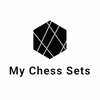Introduction to the Relationship Between Chess and IQ
Chess, a strategic and intellectually demanding game, has long been considered more than just a pastime. Across the globe, it is revered for its complexity and the cognitive skills its gameplay involves. Given its nature, many educators, psychologists, and chess enthusiasts have posited that engaging in chess can bolster cognitive abilities, including the intelligence quotient (IQ). This article explores the evidence behind chess as a tool for enhancing intellectual capacity and evaluates whether playing chess can indeed boost your IQ.
Understanding Intelligence Quotient (IQ)
Before delving into the relationship between chess and IQ, it is essential to define what IQ is. The Intelligence Quotient is a theoretical construct used by psychologists to measure a person's cognitive abilities and potential. It encompasses problem-solving skills, logical reasoning, mathematical skills, spatial recognition, and language understanding. IQ scores are often used to assess how well a person might perform intellectually compared to the general population.
The Cognitive Demands of Chess
Strategic Planning and Foresight
Chess requires players to engage in deep strategic thinking and planning. Players must not only consider their immediate moves but also anticipate their opponent's responses well in advance. This aspect of chess promotes enhanced foresight and planning skills, which are crucial components of cognitive function tested in traditional IQ evaluations.
Problem Solving and Analysis
Each move in a chess game poses a new problem that requires a solution based on the analysis of the board's configuration. Deciding on a move involves critical analysis, abstract reasoning, and complex decision-making processes—all skills that are generally associated with higher IQ levels.
Memory and Pattern Recognition
Successful chess play often relies on the ability to remember previous games and recognize patterns and sequences. This practice can greatly improve a player's memory capacity and ability to recognize and interpret complex patterns—key aspects measured in many IQ tests.
Research on Chess and Its Impact on IQ
Several studies have explored the impact of chess on cognitive abilities and IQ. A landmark study conducted in Venezuela involving over 4,000 second-grade students found that after 4.5 months of systematic chess instruction, the students significantly improved their IQ scores compared to non-chess-playing control groups. Similar findings have been replicated in studies across different age groups and demographics, reinforcing the potential intellectual benefits of playing chess.
Chess as an Educational Tool
Encouraged by such findings, many educational systems worldwide have incorporated chess into their curriculum. Not just as a game, but as an educational strategy to enhance mental flexibility, creativity, and critical thinking—attributes that contribute broadly to intellectual development beyond just IQ scores.
Limits and Considerations
Despite the promising data, it's crucial to consider the limitations and variability in the research. Most studies offer correlations rather than causation, meaning that while chess players might generally have higher IQs, playing chess doesn't necessarily cause an increase in IQ. Moreover, individuals interested in chess may already possess higher cognitive skills that attract them to the game initially.
Conclusion
While definitive claims about chess boosting IQ scores might require further validation, it is undeniably a cognitively enriching activity that stimulates various intellectual faculties. Whether played casually or competitively, chess challenges the mind, fosters problem-solving capabilities, and promotes several cognitive benefits that can translate into more generalized intellectual proficiency. Therefore, while chess might not directly increase IQ, it certainly contributes to the broad cognitive development that underpins a high IQ.
Explore our large collection of luxurious chess sets!